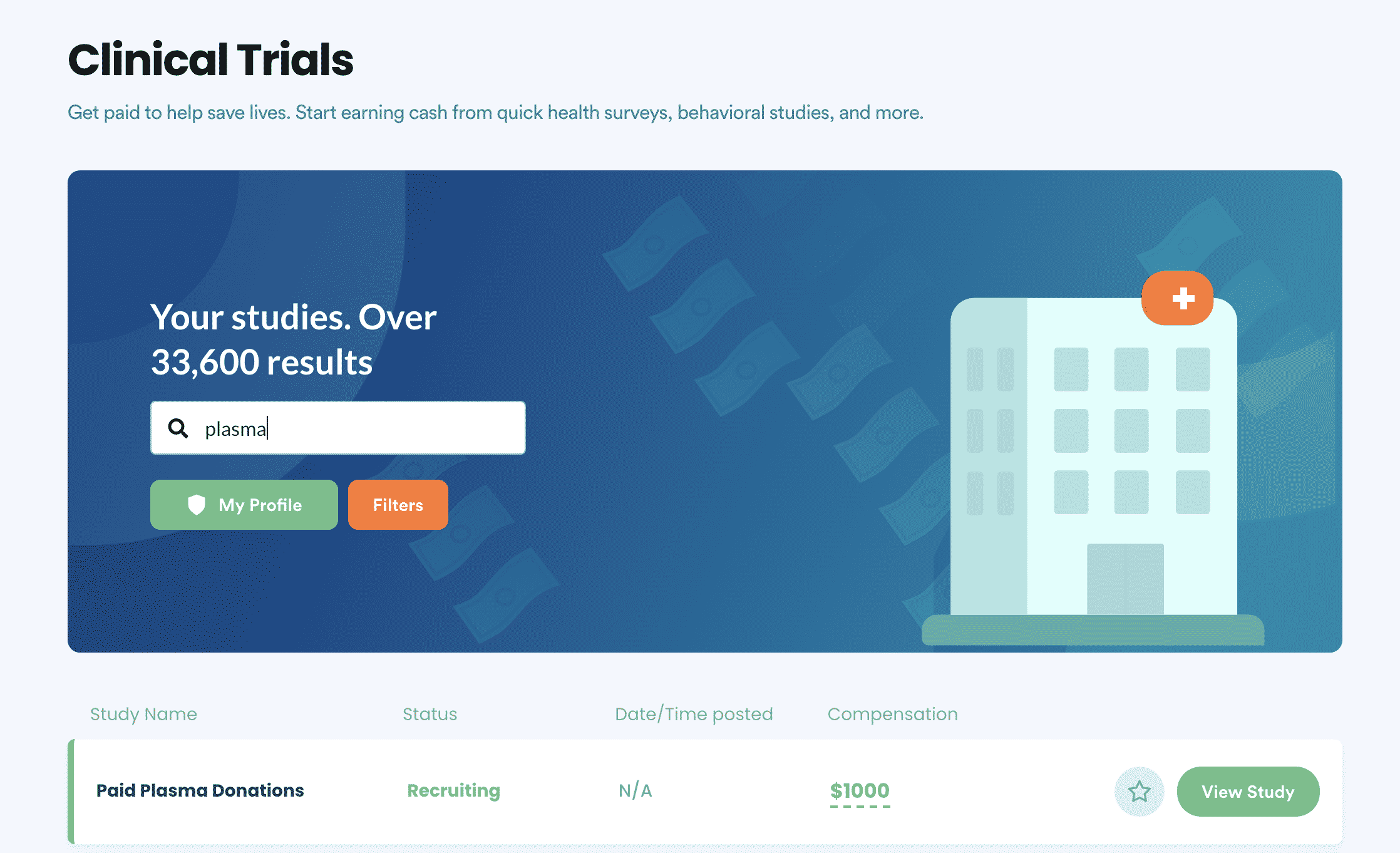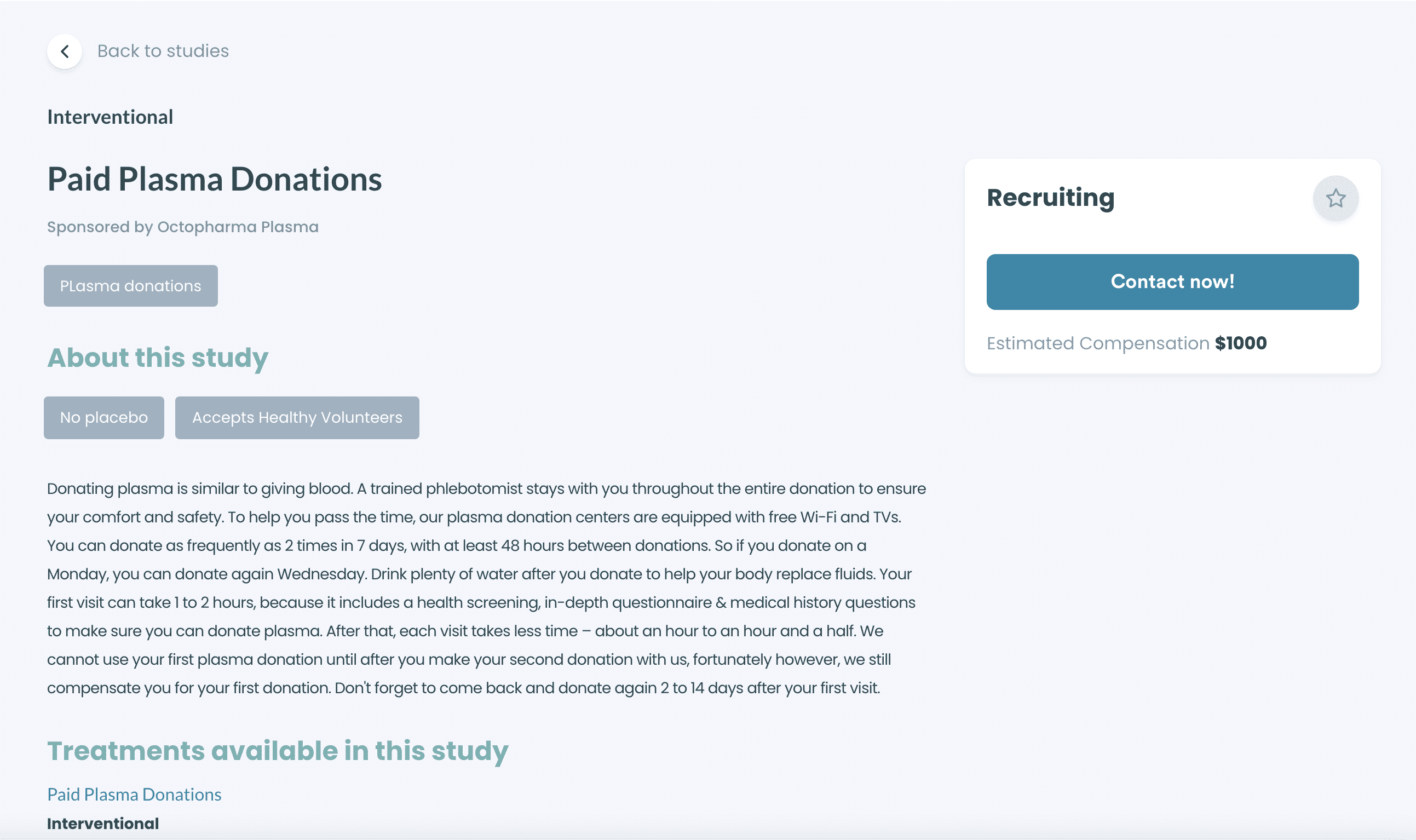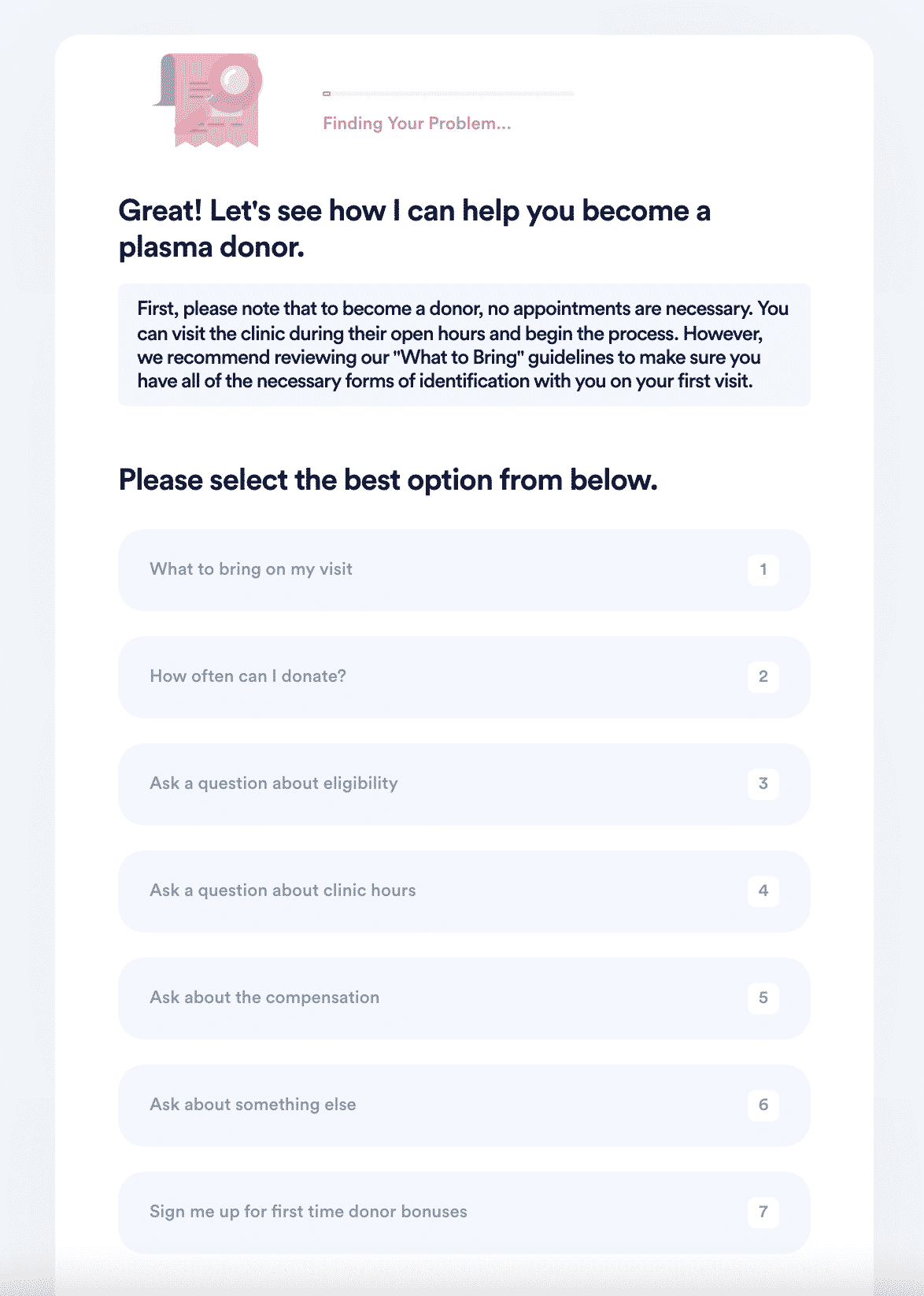How Long After Donating Blood Can You Donate Plasma
Even though donating blood and plasma is a life-saving exercise, it is vital to ensure donors' continued health and safety. Health experts and center personnel can ensure the health and safety of donors by outlining the appropriate time interval between donations.
As a plasma donor, you play a crucial role in contributing life-saving blood to those in need. for DoNotPay can help you learn more about plasma donation activities, like and who cannot donate plasma, thus assisting you to keep your health in check.
Why Donate Plasma?
is referred to as a yellow fluid that suspends blood cells and assists in transporting nutrients, waste products, and antibodies in the body. Plasma constitutes water, electrolytes, fats, proteins, and carbohydrates. Thus, it makes up the more significant part of the body tissue. Plasma donors produce albumin and anti-hemophilic protein components essential for medical therapy.
Medical therapies are used worldwide to treat diseases such as hemophilia, primary immune deficiencies, inherited respiratory illnesses, and von Willebrand disease. Plasma donation is also used to develop products that help in cardiac surgery and burn treatment. Therefore, you help extend people's lives by participating in plasma donation and getting paid for it.
Plasma Donor Eligibility Requirements
Although plasma donation eligibility requirements may vary across sites, here are the general standards you must meet to be a plasma donor:
- You must be at least 18 years old
- Your weight should be at least 50 kg or 110 pounds
- You must be successful in all medical assessments
- You must complete and pass a comprehensive medical history screening
- You should not be reactive to transmissible viruses like hepatitis.
Things to Keep In Mind Before Donating Plasma
If you are considering plasma donation activities to help patients in need, there are probably some essential questions you may want to be answered before you get started.
Some of these questions are:
| How long do you have to wait to donate plasma after donating blood? | If you have donated blood lately, you must relax for a maximum of 8 weeks until you can donate either plasma or blood. Thus, if you consider participating in donation, it is advisable to first donate plasma, then blood, because you will only have to wait for probably a few days before participating in blood donation.
You can donate plasma twice in seven days but should have at least a 24-hour time interval between donations. Your body can replace the lost plasma fast, hence the short wait time between plasma donations. This plasma donation process ensures that you only donate plasma while the red and white blood cells and platelets remain in your body. However, all blood components are taken away from your body and donated in blood donation, which explains the long wait times after a blood donation. |
| How Often Can You Donate Plasma? | The number of times you can participate in plasma donation varies across sites. The American Red Cross can only permit you to donate plasma once every 28 days or 13 times yearly, while some private plasma-donation organizations allow multiple donations in a week. Some of these organizations operate on a pay-per-donation system, providing cash to donors. Thus, continual plasma donation can be a means to earn some money. |
How to Donate Plasma on Your Own
Plasma donation is conducted at several public and private licensed and IQPP-certified sites across the US and other parts of the world. Thus, it implies that you need to visit the plasma donation center to donate.
Each organization conducts its operations distinctively according to stipulated government regulatory guidelines.
Donating plasma on your own is constrained by factors such as searching for the best-paying sites, making phone calls, or sending emails to inquire about hours of operation. These factors may discourage you from participating in plasma donation or earning extra cash. DoNotpay solves your plasma donation problem by using 3 steps to find the best site for you.
How to Use DoNotPay to Donate Plasma
Here's how you can use DoNotPay to become a plasma donor:
- Search "plasma donations" on DoNotPay and find the nearest donation clinic through our clinical trials product.

- Select the "Contact Now" button to learn more about eligibility criteria, contact the clinic with questions, or sign up for first-time donor bonuses.

- Verify your information and submit your inquiry! DoNotPay will contact the clinic on your behalf and make sure your questions get answered.

Why Use DoNotPay to Donate Plasma?
DoNotPay helps you know vital information like whether it's possible to donate plasma after receiving the COVID-19 vaccine or when diagnosed with diabetes.
You should use DoNotPay as a plasma donor because it is:
- Fast: you will spend less time finding the best site; we act on your behalf to locate plasma donation centers nearby.
- Easy: you don't have to worry about contacting a plasma donation site to inquire. Your problem is resolved in just 3 steps.
- Successful: we do everything in our power to ensure the best outcome.
What Else Can DoNotPay Do?
We are not only valuable for solving plasma donation problems, but also in various services like:
- Insurance Claims
- Requesting Sick Leaves
- Advance Healthcare Directives
- Conducting Clinical Trials
Sign up with DoNotPay today to start enjoying our services!


